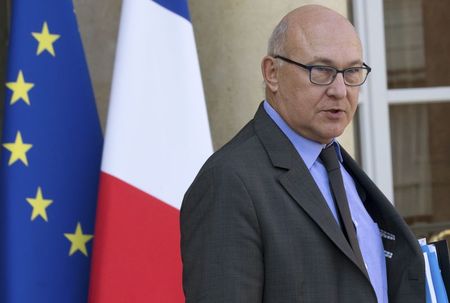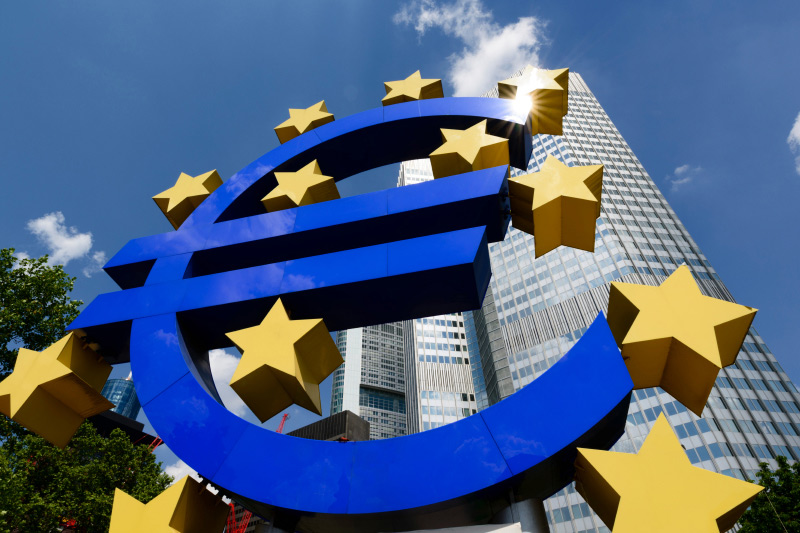By Jan Strupczewski
BRUSSELS (Reuters) - The European Commission is likely to reject France's 2015 budget draft at the end of October and ask for a new one that would better reflect Paris' deficit reduction obligations under European Union rules, several euro zone officials said.
It would be the first time the EU executive exercises its power to demand changes to a national budget draft under new prerogatives that EU countries granted the Commission in 2013.
The Commission is also likely to step up the disciplinary procedure against France to the final stage before fines while at the same time granting Paris the extra two years it wants to bring down its budget shortfall within EU limits.
The decisions, some of which will be taken by the outgoing Commission before a new team led by Jean-Claude Juncker takes office in November, would give France more time while upholding the credibility of the recently toughened EU budget rules, one euro zone official with insight into the process said.
Such a solution would also help the designated Commissioner in charge of policing budgets, France's Pierre Moscovici, to prove he will not give preferential treatment to his country, as many centre-right members of the European Parliament suspect.
Moscovici was ordered to submit written replies by Tuesday to detailed questions on how much flexibility he would give to countries that repeatedly breach EU fiscal rules after lawmakers found his answers at a hearing last week evasive.
"It would save face for everybody," the official said of the proposed Commission action. "Even if it would be a bit humiliating for France, they probably know they cannot get away without anything.
"And it would also save face for Germany and the others, who are concerned about the longer-term effects, about not watering down the rules, but who also want to give France and its unpopular president a fighting chance," the official said.
Socialist President Francois Hollande's approval rating is at an all-time low of 13 percent in some opinion polls due to public anger over unemployment, economic stagnation, public spending curbs and resistance to structural reforms.
"BIG POLITICAL PICTURE"
Germany, one of the strongest advocates of budget discipline in the euro zone, has been reticent in criticising France since the announcement that Paris would not honour its commitments.
"Its about the big political picture in France, in the end. That's why Germany is so reticent. In Berlin they already have a strong picture where Marine Le Pen is the next French president," the euro zone official said, referring to the leader of the extreme-right National Front, who leads the field in some polls ahead of the 2017 presidential election.
"You don't kick someone who is already down," the official said, adding the position would have been different had Hollande's ratings been high.
France was supposed to have brought its budget deficit below the EU ceiling of 3 percent of GDP last year, but in June 2013 EU finance ministers gave it a two-year extension, until 2015, because of a recession in the euro zone.
On Sept. 10, Paris announced it would not meet the 2015 deadline either and the deficit would only fall below 3 percent in 2017. Last Wednesday it published a 2015 budget draft that falls well short of the consolidation efforts sought by EU finance ministers in 2013.
While France blames weak economic growth, EU officials point out that it has not even met the goals to reduce its structural deficit -- stripped of the effects of the business cycle -- and so has not taken effective action to meet its obligations.
France will officially submit that budget draft to the Commission for scrutiny on Oct. 15 and the EU executive has two weeks to send it back for changes if it determines that the plan breaches earlier agreements.
"If the Commission finds that France, miraculously, did what was required in structural terms, then there will be an extension of the deadline," a second euro zone official said.
"If the structural adjustment is not there, the procedure will have to be stepped up," the official said.

France was to cut its structural deficit by 0.8 percent of GDP in 2014 and the same in 2015. The budget draft however, foresees an improvement in the structural deficit of only 0.1 and 0.2 percent respectively.
(Reporting By Jan Strupczewski; Editing by Paul Taylor)
